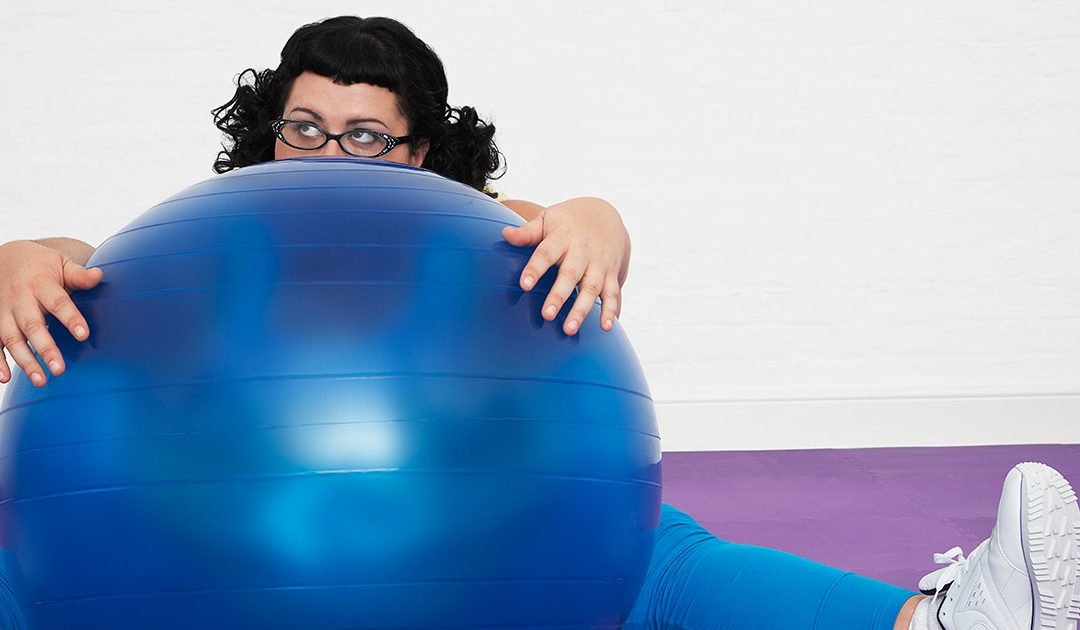I have no motivation to lose weight.
I’ve certainly heard this statement many times in my career. And it’s not uncommon. You likely lose the motivation to lose weight in waves. You know the cycle. For two to three days, you’re gung ho, shortly followed by “screw this, I want ice cream!” I get it. And at times I’m even struck by the same feelings.
And then there are some people who genuinely don’t care about their weight. It’s not a priority. I can appreciate that. But it’s the health complications that accompany excess weight that concern me. And it’s not until the health problems surface that any motivation (if any) to lose weight occurs. But this article is not for this group of people.
This is for those who genuinely want to improve their health and lose weight, but have no motivation. Why is that? Let’s explore.
Glynn’s Guide
Takeaways That Won’t Fail You
- Work to improve your self-image.
- Learn to be mindful of your emotional connection to poor dietary or exercise habits.
- Like so many other situations, keep your sugars low. It will help the chemical signals from your gut that influence our emotions.
- Don’t eliminate carbohydrates, but don’t overindulge.
- Hire a professional to coach you.
- Start slow, but not so slow that no improvement occurs. Any improvement builds motivation.
The psychology of having no motivation to lose weight
I’m not a psychologist, so I can’t enlighten you with specifics. But you and I both know that a predominant factor is an instantaneous reward vs the long term reward. And you’ll see later in the article that this cycle is a physiological trap.
You’ve heard it before and you’ll hear it again, mindfulness also plays a role. Our emotions are powerful, really powerful. You know when you’re trying not to cry during a sad movie?
Exactly, those emotions have a lot of control! And the emotional desire for more food or relaxation tends to “kick the motivation to lose weight’s butt.”
You’ll also see later in the article that your self-image plays a role in your motivation to lose weight.
The physiology of having no motivation to lose weight in our gut (yes it contributes).
You can read more about the gut-brain axis in my article Why You’re Still Feeling Hungry After Eating [And How to Stop It]. But here’s a recap of some of the hormones/neuropeptides that influence our brain activity.
- Ghrelin is your hunger signal It is a neuropeptide produced in the gastrointestinal tract. When the stomach is empty Ghrelin is released, promoting eating.
- Leptin is made by white fat cells and circulates in the bloodstream. It reduces food intake. It binds to receptors that activate the medial hypothalamus (promotes satiety). This inhibits the lateral hypothalamus to suppress hunger.
It is thought to be part of a negative feedback loop that helps with our long-term fat store “set point.” When fat increases, more leptin is released, suppressing eating. When fat stores drop, leptin levels drop. Thus reducing that feedback (which may indirectly promote eating).
- Cholecystokinin (CCK) – As your gastric compartments fill CCK is released. This circulates in the bloodstream. It also stimulates vagal signals that go to the brainstem. Eating stops due to fullness.
- Insulin reduces food intake by binding to receptors in the medial hypothalamus. It functions similarly to leptin in suppressing eating behavior.
- Serotonin is a neurotransmitter. Serotonin is produced in the brainstem and specific cells in the gut. It has an influence on the enteric nervous system that resides in the GI tract. It causes contraction of the smooth muscle around the stomach.
- Neuropeptide Y has an effect on the initiation of eating.
Okay, so how does this apply to motivation?
Well, the signals these compounds transmit are signals you have no control over.
What you do have control over is the type of food and amount you consume. You’ll see below that the type of food can make a difference. By changing some of your food habits, you can actually change some signals that will help improve motivation.
Let’s look at some of the macronutrients that make a difference.
The Macronutrients You Eat Make a Difference
Consuming carbohydrates stimulates the release of serotonin, but protein does not elicit such a response.
As I stated in a previous article, many of you know, serotonin was once touted as our “feel good” neurotransmitter. But that is now widely refuted in the neurophysiology world.
Nonetheless, many studies have shown that this increased release of serotonin from carbohydrate consumption increases one’s appetite for more carbohydrates. If you track your food intake, you know exactly the feeling I’m referring to for this circumstance.
In fact, one could think of carbohydrates like a drug that elicits a desire for more carbs. And that kills motivation because now we’re dealing with an emotional desire.
Now let’s say there is weight gain from excess food intake. This ultimately leads to a depressed sensitivity to leptin receptors.
Remember, leptin is the hormone that signals satiety (fullness). This should lead to a minimized feeling of satiety (you’re still feeling hungry, which is more powerful than most’s motivation to lose weight)!
How can you combat this issue?
No need to eliminate carbohydrates, just keep them to a minimum. Although, elimination of sugar really helps increase your motivation to lose weight. But it takes a few days to notice the difference.
So, as far as food is concerned, do the following to help motivate you.
- Eliminate or minimize sugar (including sugary drinks of any kind).
- Avoid overindulging in carbohydrates.
- Increase your protein intake.
- Increase your insoluble fiber intake.
- Increase your healthy fat intake.
Your self-image has a real impact on your motivation to lose weight
Yes, how you perceive yourself can make the difference between motivation and no motivation to lose weight. Haynes states:
Rather than being associated with improved weight management, there was consistent evidence that perceived overweight was predictive of increased weight gain over time.” That statement carries weight (no pun intended).
This is not to say that all individuals who have a poor self-image have no motivation to lose weight. It just states that it is more likely the circumstance. And this, of course, minimizes the motivation to lose weight.
So, one way to find motivation is to improve your self-image. I can’t tell you how as that’s beyond the scope of this article (and my education). But my best advice is to eliminate any negative self-talk.
Mindful eating
If you haven’t heard the phrase mindfulness-based interventions, you eventually will. It boils down to being more self-aware of your physical, emotional, and mental condition. Yes, we could go down the meditation rabbit hole, but keep in mind that mindful based interventions are just part of a multifaceted approach to weight loss. And this isn’t about meditation anyway.
It’s a good method to separate yourself from any of the negative thoughts contributing to a lack of motivation.
In fact, Radin states:
Those with greater compulsive eating may reduce the risk for metabolic decline by participating in a mindfulness-based weight loss program.”
So, if you’re able to recognize your negative emotions connected to food, exercise, and motivation, you can work on changing that connection. How? This will require diving into learning about mindfulness. It’s worth the effort.
Initial results
Individuals who try to lose weight (motivation or not) find more motivation if they see improvement within four weeks’ time. I believe even that time frame is a slippery slope. The sooner someone sees results, the more likely to find continued motivation.
As a fitness coach, I have to straddle that fine line of not making too many changes to new clients’ food and exercise, but still obtaining some results. Sure, we can drop a sledgehammer, change everything (all or nothing principle) and see serious change. But adherence to such changes is nil.
A slower approach that elicits a change is best to start. Then once more motivation is cultivated due to the improvements, we can ramp up the changes. I’ve found this approach to work best for most people.
What I’ve seen trend over three decades
When someone realizes their motivation and results will improve a lot with a professional’s guidance, it’s half the battle. So seeking a qualified trainer or fitness coach (online or in-person) can be very beneficial.
When I was hired over time, if we clicked, we were usually successful in achieving a healthier weight. What do I mean by “we clicked?” I mean the three criteria below were met:
- I could find a genuine reason for their wanting to lose weight.
- They trusted me.
- And we enjoyed one another’s company while training or during nutritional work.
I genuinely believe that people will work harder for people they like. Not bullshitting people and genuinely caring is so important when helping someone maintain motivation to lose weight and get healthier. Make sure whoever you hire does not see you as a dollar sign. Okay, enough of my soapbox spiel.
So, those criteria combined with a slower approach that still showed results made for the best motivation. Below is a summary.
What did I do with my clients in the past to find the motivation to lose weight?
Here’s a summary of how I have been able to motivate my clients to lose weight/improve health when there was none.
- I made sure I clicked with them and kept them accountable.
- Started slowly, but with enough change to elicit improvement. This propelled motivation.
- Had them minimize their sugar intake.
- Adjusted their carbohydrates down if they felt like they wanted more carbohydrates after eating carbohydrates. You know that feeling. Wow, that previous sentence was redundant!
- Helped them be more mindful of the above feelings as well as any emotions corresponding with no motivation to lose fat.
- Tailored their exercise program to contribute to weight loss.
- Made sure they were finding value and enjoying the exercise.
- I continued to connect as often as necessary to build self-sustaining habits.
Can motivation be taught?
I’m not so sure “taught” is the right word. I do believe motivation can be cultivated and grown. It requires the right feedback internally and externally. And by feedback, I mean both psychologically and physiologically.
Cultivated motivation is cyclical and builds upon itself.
7 Small Changes to Find the Motivation to Lose Weight
This is where we tie in the above reasons and apply them to the individual. Here’s a summary of ways to find the motivation to lose weight.
- Improve your self-image by eliminating negative self-talk.
- Find the deep underlying reason for weight loss or improved health.
- Keep your sugars low to prevent chemical signals from your gut from influencing your emotions negatively.
- Avoid overindulging on carbohydrates.
- Be mindful of any negative thoughts or emotional eating. Work to improve that connection.
- Start slow and let small improvements build motivation.
- Hire a professional (personal trainer or nutritionist) to help. It’s usually a more efficient path to an end goal. And sometimes you’re completely unaware of habits that are holding you back.
Conclusion
Even if you just don’t have the motivation to lose weight, there are ways to trick yourself into becoming motivated. Finding a deep underlying reason for improving your health is a good place to start. While you’re looking inward, try to improve your self-image. Eliminate negative self-talk. Sometimes, that’s all that’s holding you back.
I know the “mindfulness card” is way overplayed, but there’s real validity to being aware of negative thoughts associated with food or exercise.
As far as food is concerned, work to minimize sugars and avoid excess carbohydrates to help with the chemical signals from your gut. These signals have a real impact on your emotions.
Don’t give up, these are valid ways to help you find motivation for improved health. I assure you, it’s worth the effort.
References
Barnes, Mary Sophia; Cassidy, T., Diet, Exercise, and Motivation in Weight Reduction: The Role of Psychological Capital and Stress: Diet, Exercise, and Motivation in Weight Reduction. In: JOJ Nurse Health Care. 2018; Vol. 9, No. 5. pp. 1-6.
Blundell, J.E.Hill, A.J., Serotoninergic modulation of the pattern of eating and the profile of hunger-satiety in humans, Food and Agriculture Organization of the United States, 1987.
Brodel, Per, The Central Nervous System, Structure and Function, New York, NY: Oxford University Press, 1992.
Caballero, B., Brain serotonin, and carbohydrate craving in obesity, Food, and Agriculture Organization of the United States, 1987.
Carrière, K., Khoury, B., Günak, M. M., and Knäuper, B. Mindfulness‐based interventions for weight loss: a systematic review and meta‐analysis. Obesity Reviews, 2018, 19: 164–177.
David E. Cummings and Joost Overduin, Gastrointestinal regulation of food intake, The Journal of Clinical Investigation, January 2007. Pg 13-23
Haynes, A., Kersbergen, I., Sutin, A., Daly, M., and Robinson, E. A systematic review of the relationship between weight status perceptions and weight loss attempts, strategies, behaviors, and outcomes. Obesity Reviews, 2018, 19: 347– 363.
Karine Spiegel, PhD; Esra Tasali, MD; Plamen Penev, MD, PhD; Eve Van Cauter, PhD, Brief Communication: Sleep Curtailment in Healthy Young Men Is Associated with Decreased Leptin Levels, Elevated Ghrelin Levels, and Increased Hunger and Appetite, Annals of Internal Medicine, December 2004.
Marieb, Elaine, Human Anatomy and Physiology 3rd edition, Redwood City, CA; The Benjamin/Cummings Publishing Company, Inc, 1995
Marilia Carabotti,a Annunziata Scirocco,a Maria Antonietta Maselli,b and Carola Severia, The gut-brain axis: interactions between enteric microbiota, central and enteric nervous systems, Annals of Gastroenterology, 2015 Apr-Jun; 28(2): 203–209.
Paintal, A., A study of gastric stretch receptors. Their role in the peripheral mechanism of satiation of hunger and thirst, The Journal of Physiology, November 1954. Pg 255-270.
Angelo Del Parigi, Kewei Chen, Jean-François Gautier, Arline D Salbe, Richard E Pratley, Eric Ravussin, Eric M Reiman, P Antonio Tataranni, Sex differences in the human brain’s response to hunger and satiation, The American Journal of Clinical Nutrition, Volume 75, Issue 6, June 2002, Pages 1017–1022.
Radin, R. M., Epel, E. S., Daubenmier, J., Moran, P., Schleicher, S., Kristeller, J., Hecht, F. M., & Mason, A. E. Do stress eating or compulsive eating influence metabolic health in a mindfulness-based weight loss intervention? Health Psychology, 2020, 39(2), 147–158.
Raj K. Goyal, M.D., and Ikuo Hirano, M.D., The Enteric Nervous System, N Engl J Med 1996; 334:1106-1115 Wurtman, R. J., & Wurtman, J. J., Brain serotonin, carbohydrate‐craving, obesity, and depression. Obesity Research, 3(Suppl 4), 1995. 477s–480s.
Kelly H. Webber, Deborah F. Tate, Dianne S. Ward, J. Michael Bowling, Motivation and Its Relationship to Adherence to Self-monitoring and Weight Loss in a 16-week Internet Behavioral Weight Loss Intervention, Journal of Nutrition Education and Behavior, Volume 42, Issue 3, 2010, Pages 161-167.




